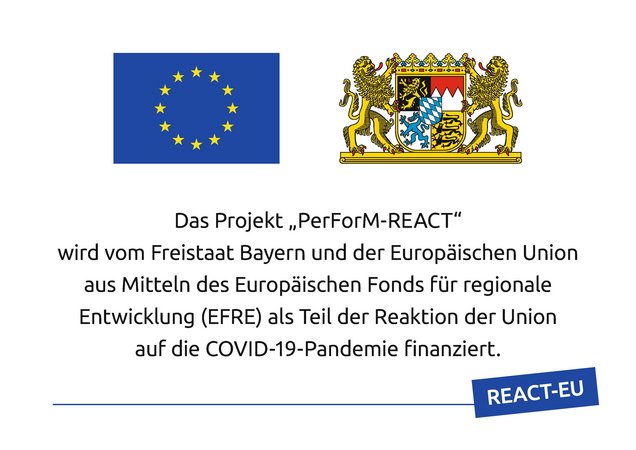
Preventing the Next Pandemic: EU Funds Research Infrastructure in the Munich Area
The EU grant “PerForM-REACT” supports an infrastructure in the greater Munich area for pandemic management and prevention. Helmholtz Munich will receive new equipment for a biosafety level 3 laboratory where researchers can conduct important studies for the prevention and management of future pandemics. The project is part of the European COVID-19 aid REACT-EU and the European Regional Development Fund.
“We hope for the end of the pandemic, but we must not rest yet. The power of outstanding biomedical research has to be harnessed to better prepare the world for a future pandemic or similar event. Excellent research needs the brightest minds as well as first-class equipment. This EU funding enables us to further expand the laboratories and to deliver significant contributions to pandemic preparedness”, says Matthias Tschöp, CEO at Helmholtz Munich.
Hubert Aiwanger, Bavarian Minister of Economic Affairs, sees a major gain for Bavaria: “By providing EU funding to "PerForM-REACT", we are focusing on potentials for innovations. We ensure our competitiveness and at the same time we make an important contribution to overcome the impact of the pandemic. All local players proved to be forward-looking and at the same time acting innovative, as is prerequisite in these circumstances. In this manner, we will be able to quickly face new challenges. The project "PerForM", funded by EU-REACT, is an outstandingly example how this approach is consistently implemented.”
Research projects at Helmholtz Munich
With its focus on lung diseases, metabolic diseases and drug discovery, Helmholtz Munich scientists have developed numerous preventive and therapeutic approaches for the treatment of COVID-19. Using the new biosafety level 3 (BSL3) equipment, they can now further develop these approaches and gain insights for future pandemics. To this end, Helmholtz Munich will partner with companies from the private sector to work on promising innovations for the detection of viruses and bacteria and for air purification.
According to Ulrike Protzer, learning from the current pandemic can help us better prepare for other emerging infectious diseases. “Pathogens such as SARS- or MERS-coronaviruses and influenza viruses, which are all transmitted via the respiratory tract, can cause similar lung diseases in humans. We therefore need to better understand why emerging viruses always affect us and cause diseases in a similar way. Understanding disease processes and how we can detect and eliminate airborne pathogens will help us to develop broadly effective therapeutic approaches more quickly,” the lead virologist at Helmholtz Munich says.
Laboratory biosafety
Laboratories must comply with strict regulations in order to conduct safe research on highly infectious pathogens such as newly emerging coronaviruses. In Germany, a European directive regulates the requirements for laboratories with four biosafety levels. Research on airborne diseases such as COVID-19 requires BSL3 standards. The standard equipment of a BSL3 laboratory includes an air-sealed entrance airlock, rooms with negative pressure, special workbenches, highly efficient ventilation and filter systems, a heat inactivation system and a sophisticated safety concept to prevent the escape of a pathogen. Depending on the research work, specialized technical equipment with measuring and analysis devices as well as high-tech microscopes are required. Moreover, highly qualified personnel for BSL3 laboratories require special protective clothing and the use of respirators.







